Jeff Nichols on how he knew Austin Butler was his man and the coolness of motorcycles
Jeff Nichols makes smart, engaging, personal movies. Films with specific and unique tales that echo universal ideas. Stories with heart. Adult movies. The kind of movies Hollywood used to care about supporting before it became obsessed with existing intellectual property and international box office.
The industry has shifted since Nichols’ indie feature debut, 2007’s “Shotgun Stories” and his spectacular 2011 follow-up, “Take Shelter,” but Nichols has continued to author the same kind of films, works that all feel a piece of his admirable indie career.
The Austin-based writer-director has often centered his films around relationships, whether between family members and their proxies, or a character with himself, his anxieties and his place in the world.
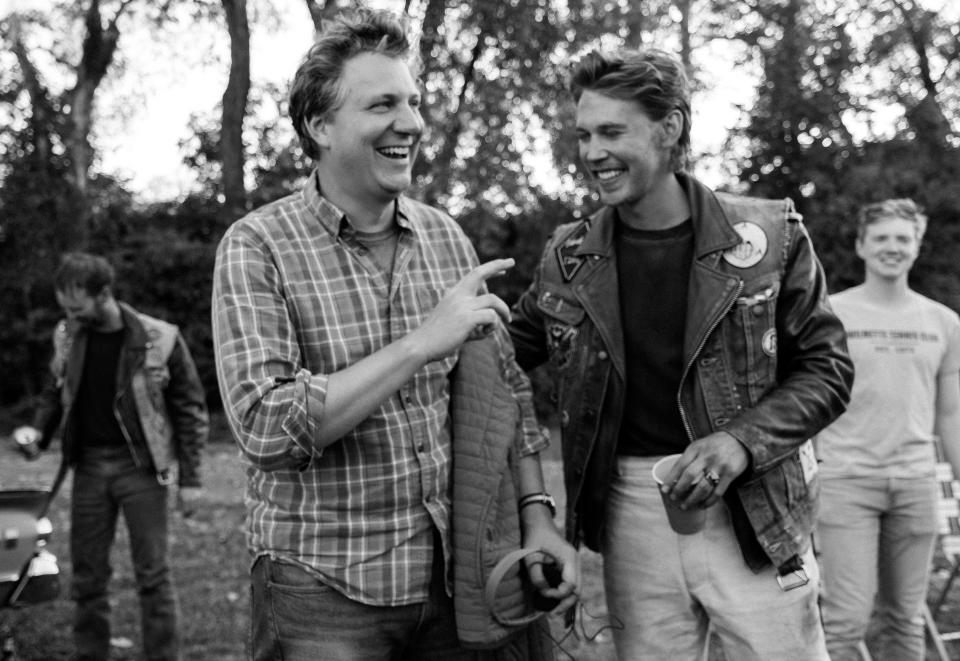
The Arkansas native, who usually chooses rural settings for his tales, has fluidly moved through genres, from Southern Gothic (“Shotgun Stories”) to science fiction (“Midnight Special”), and on-the-run coming-of-age adventures (“Mud”) to period pieces (“Loving”), but each resonates with a similar heart and grounded humanity.
Nichols’ latest, “Bikeriders,” marks the filmmaker’s return to the big screen following an eight-year absence, half of which was spent developing a film, “Alien Nation,” that fell apart at the 11th hour.
“Bikeriders,” which opens wide Friday, finds Nichols once again exploring relationships, here an unexpected love triangle that is both romantic and platonic, and one man’s relationship with himself, his identity and his place in the world.
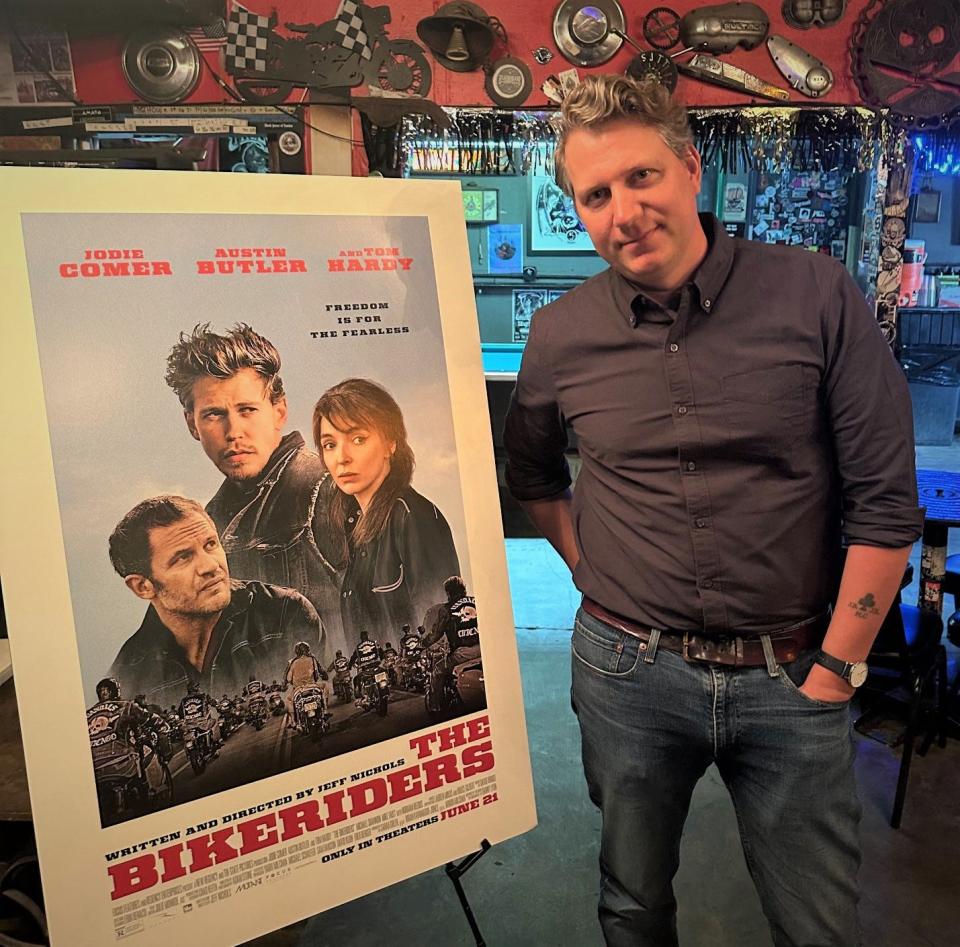
The period piece, set in Chicagoland of the late 60s, was inspired by Danny Lyons’ 1968 black-and-white coffee table book of the same name that highlighted a 1960s biker gang. The filmmaker discovered the book at his musician brother’s (Ben Nichols of Lucero) house and was lured by the striking look and stories – those he imagined and those that were written – of the subjects.
The book served as a jumping off point for Nichols’ fictional tale of a beautiful restless soul named Benny (played by Austin Butler doing his best James Dean), whose non-committal boyish magnetism attracts a sharp but bored Kathy (played with steel and longing by Jodie Comer).
Kathy is enamored of the change-of-pace life of Benny and his gang, the Vandals, but eventually wants to draw Benny toward a more settled existence. She faces an opposing pull from the intense and lonely leader of the Vandals, Johnny (a brooding gorilla of a man played by Tom Hardy), who wants Benny to more fully dedicate his life to their shared passion and chosen tribe.
The movie takes on a more ominous and severe tone in its second half, as the stakes around Benny’s desire to identify who he is and what he wants in the world, become heightened by changes in the broader culture, generally, and the Vandals’ culture, specifically. The movie is a slow burn with more going on underneath the surface than the greaser love story and period piece first lets on.
The American-Statesman sat down with Nichols recently at motorcycle-loving dive bar, The Lost Well in East Austin, to discuss making a biker movie, people’s desire to identify, the power of subcultures and more.
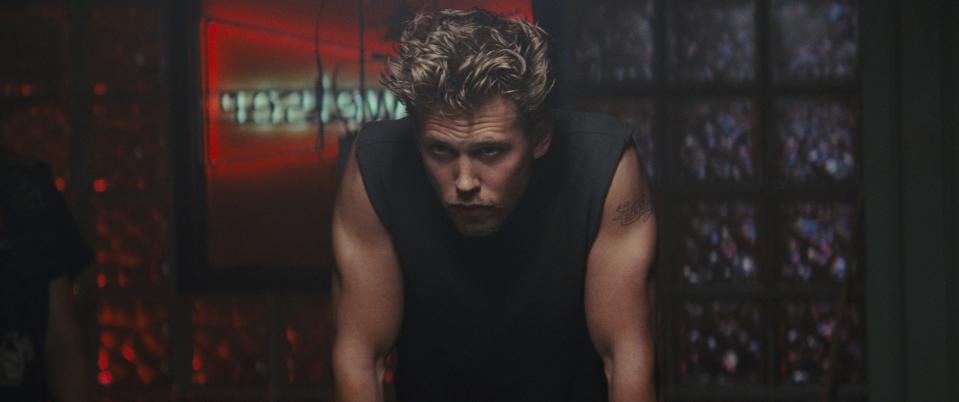
American-Statesman: You see Danny Lyons' book on your brother Ben’s coffee table ... do you immediately start thinking about who’s gonna be your James Dean and your Marlon Brando?
Nichols: Austin came first, through my producing partner, Brian Kavanugh-Jones. Casting is always a strange thing. “Elvis” hadn’t come out yet and I was in L.A. meeting the New Regency guys (the producers) for the first time, so we didn’t have full funding. But his agent had reached out to Brian and said, “I got my hands on this script and Austin needs to be considered for this role.” I met him at a place in L.A. The guy just walked in the door, and that was it. It was a really easy thing to do. It helped that he was a nice guy and a down-to-earth guy, but just from the “Elvis” trailer, you could tell this guy had done some work. I didn’t know just how talented he was, but he looked just like what I had in mind.
Hardy kind of reminded me of the old gorilla in the zoo who wanders off sullenly to a corner by himself.
Hardy’s incredible. We didn’t even talk about it very much, but he took on the age of the character. He gets out of the car before delivering that line you mention, he looks like he’s sore. That’s all Hardy.
How much freedom did you have with their characters and character development?
We used the book for how we wanted their clothes to look and fit and how their hair shifted over the course of the 60s. How the bikes looked. All of that stuff, we feasted on those photos. But the characters I gave myself a lot of flexibility with. Even from the writing stage, you’re taking those interviews and making amalgams of them. This isn’t meant to be the true story of these people’s lives. I needed the creative freedom to move pieces around. But it really needs to be said: I’m not a student of biker culture, contemporary biker culture, especially. Danny’s book interested me. So, if it’s in Danny’s book, it’s in the movie.
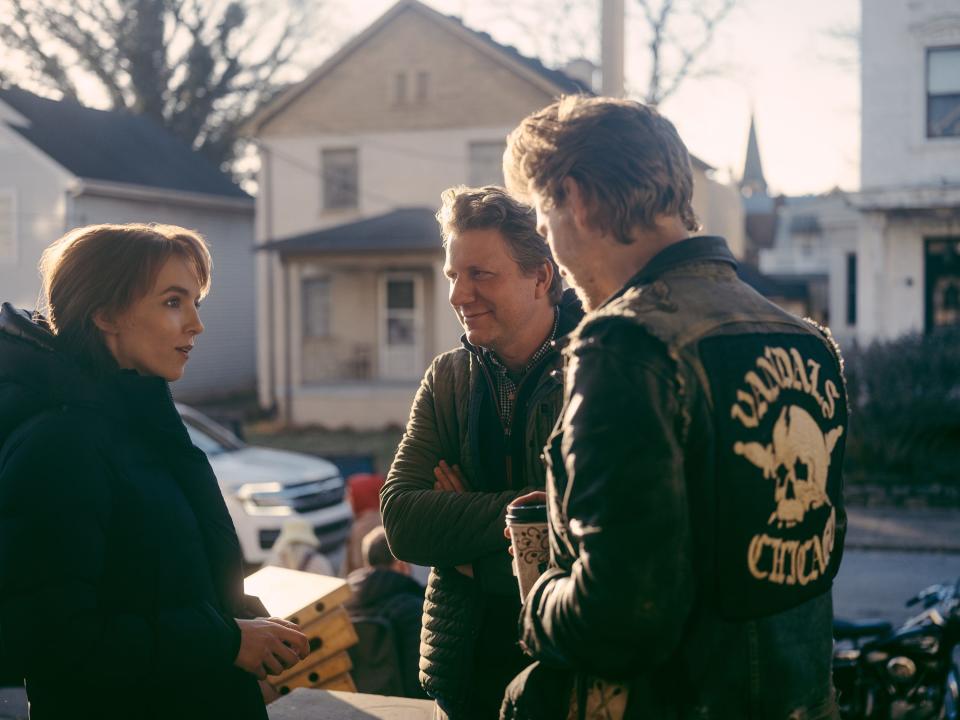
What interested you about the book?
I just loved the way it looked. I loved that it was a complete anthropological study of a subculture. Because the photographs are romantic and they’re beautiful. But then you read these interviews that read like monologues and they are the second half of the movie. And they’re starting to build this psychology of how these people think and why they do what they do. I found that fascinating. It’s a hybrid film in that sense: it’s real people’s words but they’re structured in such a way that they live in my creation.
Were you thinking as you went into making the movie about how people try and connect themselves to a thing in order to give themselves an identity? Especially in that analog era. Now you can find every subculture and scratch any itch and define yourself any way you want, but back then people were tying themselves into these monolithic things that obviously attracted disparate characters and personality types with different motivations?
100%. You remember that time, it was kind of pre-internet, when things used to be “ours,” like, “That’s my band. Because I’m one of the few people who know about it.” Whether that was ever true or not, you got the sense that there were these niche things that were just yours.
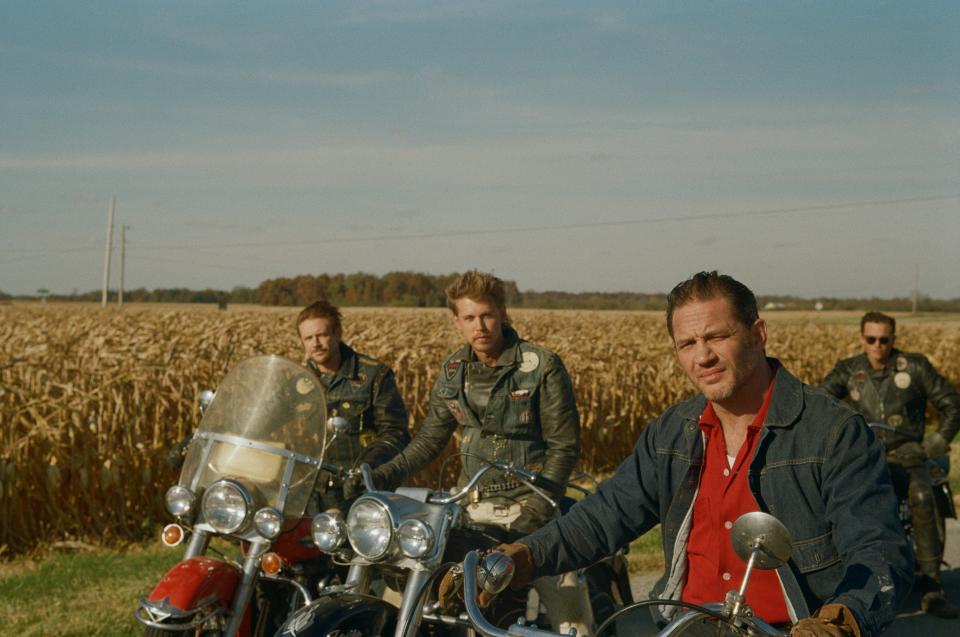
I’m really fascinated by this pattern that for lots of reasons there are people who feel like they don’t belong in mainstream society, so they move to the outer edges of it. And, despite that kind of individual need to move outside of the mainstream, you still want to belong to something because we’re humans and that’s how we’re built. So, that’s how punk rock starts; that’s how motorcycle gangs start. When these subculture groups start, they can’t help but be pretty organic because they’re ill defined; no one’s put any structures to it. But, because this is what we do as humans, we start to make rules for things.
You often tell very personal, intimate, interior stories. Those get told less and less often in Hollywood these days. To what do you credit your ability to be able to get a film like “The Bikeriders” even made and released in today’s industry environment?
It’s kind of crazy it exists, especially in this day and age. I mean, this is the largest budget I’ve ever had. Just the cost of the bikes, and the clothes and the extras and the set dressing, and the actors, too.These used to be called mid-tier studio films, and they really just don’t exist anymore, so I consider myself pretty lucky. A big part of that credit has to be given to New Regency (“Pretty Woman,” “Heat,” “Fight Club”).
They’re an interesting studio because they’re kind of self-financed, started by Arnon Milchan and now run by his son, Yariv. They take strange, big swings, going all the way back to “King of Comedy” with Scorsese, and more recently with “Lighthouse” and “The Northman.” They’re a unique company. And, honestly, we didn’t take this script around; we didn’t shop it. My producing partner, Brian Kavanaugh-Jones, had a relationship with New Regency and slipped them the script and they said they wanted to do it and we were off to the races.
How did you think your point of view as a filmmaker would apply to a story like this and told this way?
It was a stretch. This is outside my aesthetic. I think, too, we had checked the box in terms of making a period piece with “Loving,” which was very intimidating, but aesthetically these films couldn’t be more different. Also, narratively. Even the conceit of them. “Loving” was supposed to be an extremely true film. This is not that.
This is a bit of a romance, a bit of a dream. This isn’t supposed to be a documentary of any stretch, despite the source material. It felt like a big challenge for me. I knew I wanted it to move a certain way and sound a certain way. It was different from any of my other films: I wanted it to have voiceover; I wanted it to have non-diegetic music that would wash over scenes. That was stuff I had not embraced in any of my other films, but it felt like this film needed it.
You brought to it an ominousness that starts to come in around the second half of the film, and it starts to feel like a different movie.
That’s very true.
There are laughs and some lightheartedness early on but it starts to become darker and kind of tracks with changes in the culture. As you’re thinking about pacing that out and developing the tone, how do you relate that to what the material is?
It’s interesting. It’s a shift in the tone of the film that’s very specific after (spoiler deleted out of respect for readers). If you look at the filmmaking tools that are shifted and used later in the film: you stop having so much period music that washes over scenes; the voiceover pulls way back. You could look at it as a shift and how the intention of this club shifts over the course of the 60s, but it’s also kind of a reveal, like maybe some of this stuff has been under there the whole time but the romance of it has obscured it. In that sense, it really does take a page out of “Goodfellas.” In that first hour, you really are falling in love with a dangerous subculture. I do think there was a shift of intention with the club and I think there was a different kind of guy joining this club between the late 50s and the late 60s, but I also think there’s something in the nature of these guys and the subculture that was always there.
It reminds me of Johnny’s line in the film: “You can give everything that you have to something, but it’s still gonna do what it’s gonna do.” So that becomes the danger of defining yourself through this group.
Exactly. To go back to identity for a second: It seems to be what we’re all trying to do: Find a point of view for ourselves. Especially now more than ever because everybody’s like a Tik Tok star and has their thing. But it’s more than that. We want individuality; we want to be unique.
Ironically, we’ve never been more tribalistic.
100%. Because people find so much identity in the tribe they run with. And the more unique or strange the tribe is they run with, the more unique they are. At least that’s how they feel. And I think this is an example of that. But you also can’t dismiss, and the film tries to hold this complexity, how attractive it is. It’s an interesting part of human nature that we’re attracted to things we know are dangerous for us. I compare it to the motorcycle, in general. We look at them, like, “Wow. That’s good lookin'. I want to get on that.” But, that thing’s gonna kill you if you ride it long enough. That’s part of the allure.
But it’s not just that. They’re just (expletive) cool. I started to ride when I started writing this script, and every time I get on a bike, I feel cool. I don’t have a bike here in Austin. Riding around the city would freak me out. But we have a place in the Hill Country and I ride around out there.
This article originally appeared on Austin American-Statesman: 'Bikeriders' filmmaker on coolness of Austin Butler, motorcycles

